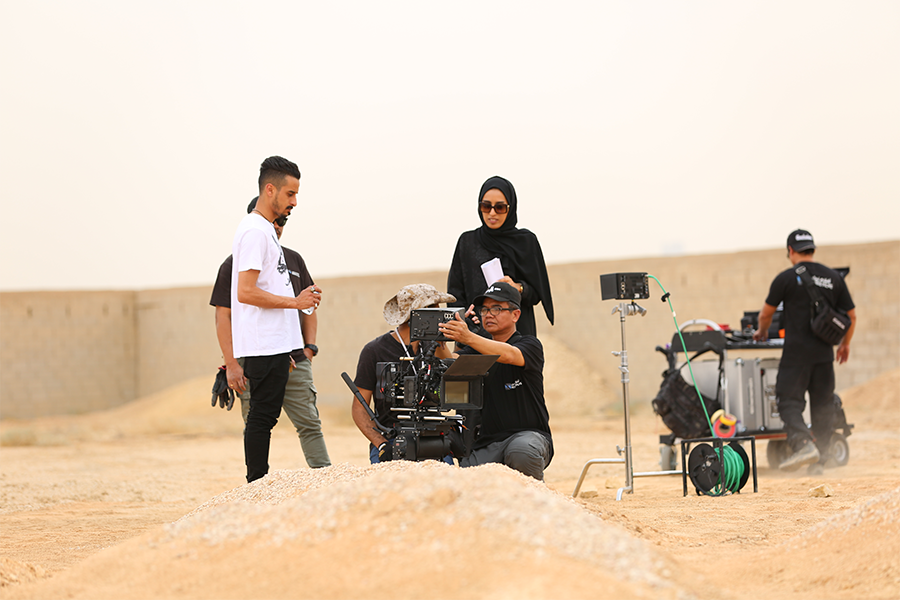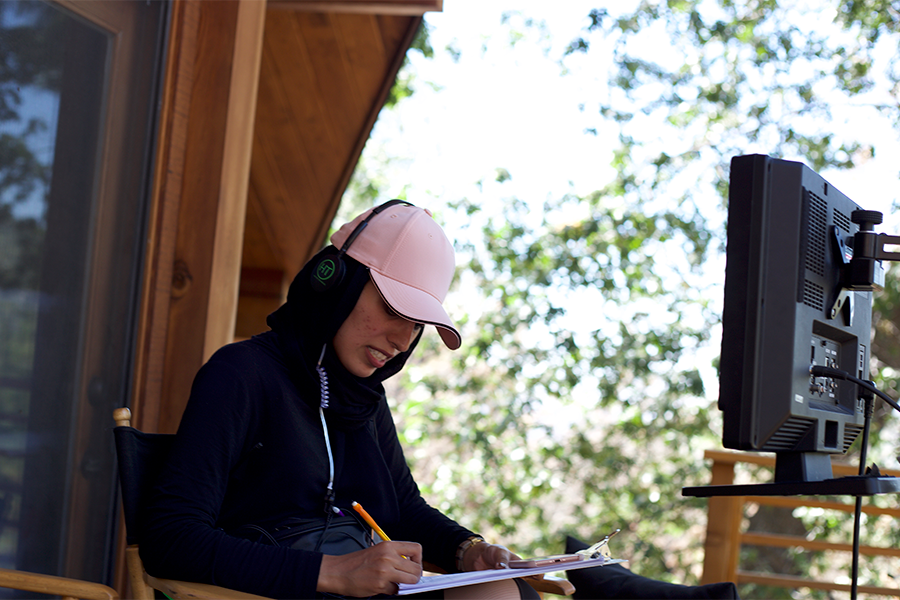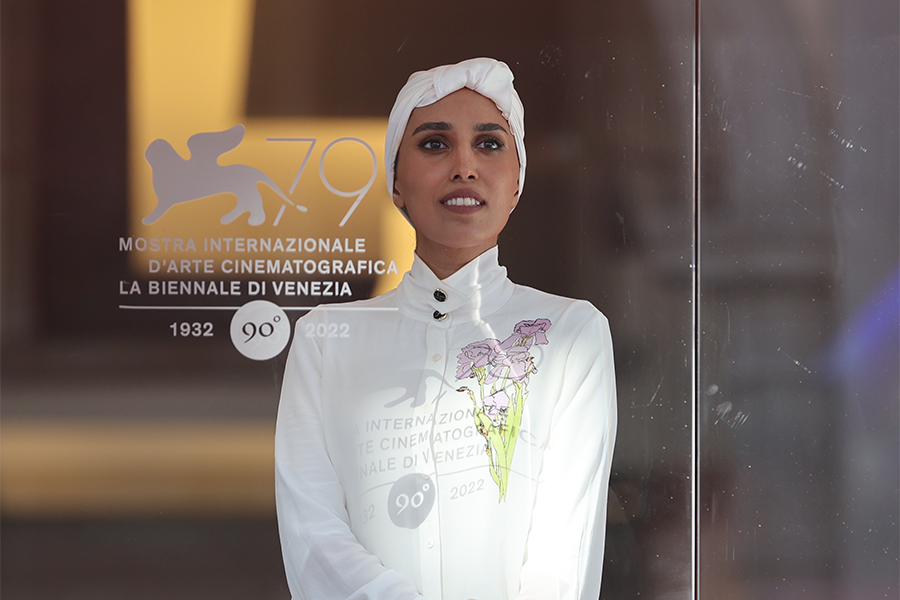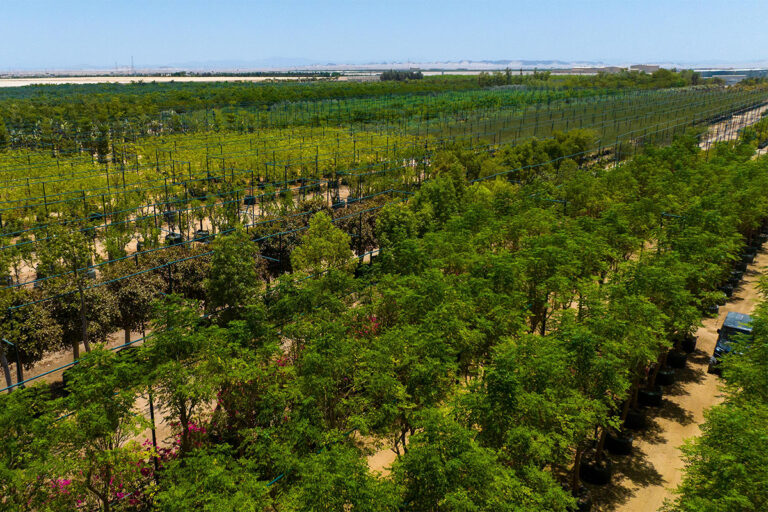
Hajar Alnaim is helping to wake the sleeping giant of world cinema. Backed by Saudi government funding and by major Hollywood companies including Netflix, she is training a new generation of Saudis in the job skills needed by the country’s rapidly growing film industry. As authentic Saudi movies begin to outperform international blockbusters in their home market, it is clear that a new force in film has arrived.
Just five years after the first commercial movie theaters opened in Saudi Arabia, Saudi films are already taking on Hollywood blockbusters—and winning. In early 2023, “Sattar,” a Saudi action comedy set in the world of freestyle wrestling, knocked “Avatar: The Way of Water” off the top of the local box office, heralding the arrival of an ambitious new player in the global film industry.
“Saudis want authentic local content that speaks to them,” says producer Hajar Alnaim. “Local titles are beginning to outperform international productions, and we are making great progress in sharing our stories with the world.”
““I want my mother to be able to go to the movie theater and see people just like her on the big screen.”
Hajar Alnaim, cofounder and CEO, Studio Production Training (SPT)
After triumphing in its home market, “Sattar” became only the second Saudi feature film to be released in British cinemas. The movie’s success is testimony to a concerted drive by the Saudi government and producers such as Alnaim to grow the audiovisual ecosystem and train local talent, especially for the all-important “below-the-line” positions in a film crew.

“We are heavily focused on creating a new pipeline of below-the-line talent in Saudi Arabia,” Alnaim says. “We want people to express their voices in the film industry and use their skills to tell stories through film, whether as makeup artists, set designers, art directors, or technicians.”
Backed by funding from Saudi Arabia’s Cultural Development Fund, Alnaim’s company, Studio Production Training (SPT), is training young people in the skills needed by the rapidly growing industry.
“Training professionals in best practices is vital to our success,” Alnaim says. “Saudi filmmakers will only produce authentic content if they are able to use local crews.”
To meet Saudi Arabia’s growing appetite for local stories, international production houses and distribution platforms are increasing their presence in the Saudi market. At SPT, Alnaim has teamed up with Netflix to help incubate Saudi filmmakers and develop young talent and new stories.
“It’s a win-win for everyone,” she says. “The students grow their careers, the producers get higher-quality shows, and the film-going public and the Saudi film industry benefit from more authentic local content.”
Alnaim expects that Saudi Arabia will follow the example of South Korea, and make films and television shows that appeal to viewers across the Middle East and beyond.
“We are going to create new content that not only resonates with local audiences, but also captivates viewers worldwide,” she predicts. “In the next five years, we will produce two to three movies that achieve significant global success and represent the authentic voice of Saudis to the whole world.”

Have you always wanted to make movies?
What drew me into film was my desire for the world to hear my voice. Studying film in the U.S. was a life-changing experience for me. I worked on numerous sets to climb up the ladder, and I made a student film which went to several festivals and platforms. I started my own production company in Saudi Arabia, MTHEC Studios. When the government launched its Vision 2030 plan, my focus shifted from directing to producing movies. I became one of the first employees of the new Saudi Film Commission, the first-ever government institution dedicated to the film industry in Saudi Arabia. I am thrilled that I am helping lead this change.
What are the main challenges faced by the Saudi film industry?
The main challenge is establishing the ecosystem. We have to raise awareness about all the career opportunities in the film industry, train people, and create jobs for them. By working with international producers, we are transferring know-how and developing skilled, professional, and authentic Saudi crew members. Lots of Hollywood producers want to be involved. I always wanted to be the bridge between Saudi Arabia and Hollywood producers. We can develop our film industry faster with their knowledge and experience.
What content is successful in Saudi Arabia?
The Saudi audience is demanding. We are creating more and more content that resonates with them. Everybody is trying to unlock the formula for developing great Saudi content. We aim to engage larger audiences online and increase the visibility of our commercial productions. We have made great progress, but we are only just beginning and we are very ambitious.
What sort of movies would you like to make?
I want to tell more stories about women in Saudi Arabia, capturing the essence of Saudi women and highlighting all the diversity within our society.
I want to give every girl in Saudi Arabia the opportunity to see herself represented on the big screen. That is my dream![]()









